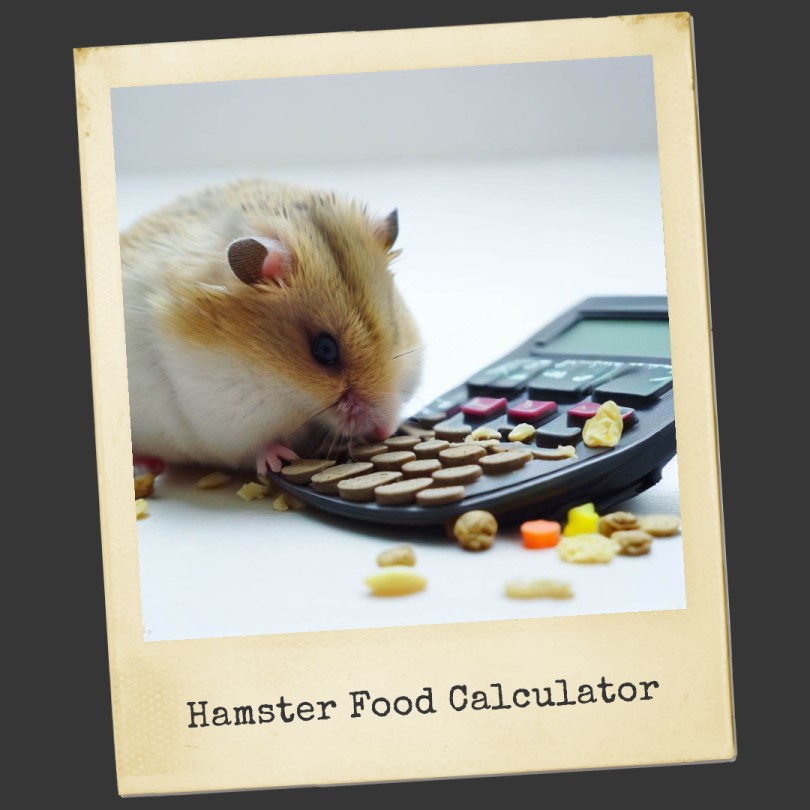Hamsters, like all animals, have specific dietary requirements that need to be met to ensure their well-being. However, these needs can vary significantly depending on factors such as the hamster’s species, age, and weight. Overfeeding or underfeeding can lead to health issues, including obesity and malnutrition.
Table of Contents
Hamster Food Consumption Calculator
Here is a basic calculator to help you When you click the “Calculate” button, it runs a simple function, which calculates the total amount of food your hamster should consume based on the weight you entered, as well as the amounts of protein, fat, and fiber. The results are then displayed on the page.
Enter your hamster's weight (in grams):
| Food | Protein | Fat | Fiber |
|---|---|---|---|
Educating Pet Hamster Owners
This calculator is a simple yet effective tool designed to help pet owners understand how much food their hamster needs. By inputting the weight of the hamster, the calculator provides an estimate of the amount of food the hamster should consume per day. This tool is based on scientific research, taking into account the average food consumption of hamsters per 100g of body weight.
The beauty of such a tool lies in its simplicity and accessibility. It demystifies the process of feeding your hamster, turning it from a guessing game into a science. This not only helps to ensure that your hamster is getting the right amount of food, but it also empowers you as a pet owner, giving you the confidence that you’re providing the best care for your pet.
Moreover, tools like the hamster food consumption calculator play a vital role in promoting responsible pet ownership.
Understanding the Dietary Needs
Understanding the dietary needs of different hamster species is crucial for their overall health and lifespan. Each species of hamster has unique dietary requirements that, when met, can help ensure they live a long, healthy life. Here’s why:
- Prevention of Nutritional Deficiencies and Overfeeding: Hamsters need a balanced diet that includes the right amounts of proteins, fats, and fibers. Understanding the specific dietary needs of a hamster species can help prevent nutritional deficiencies or overfeeding, both of which can lead to health problems.
- Weight Management: Just like humans, hamsters can become overweight or underweight if their diet isn’t properly managed. Knowing the right amount and type of food your hamster needs can help maintain a healthy weight.
- Longevity: A balanced diet can help prevent diseases and increase the lifespan of your hamster. For instance, a diet low in fat and sugar can help prevent diabetes, a common condition in some hamster species.
- Energy Levels: Hamsters are active creatures, especially at night. Providing them with the right diet ensures they have the energy they need to explore and exercise.
- Healthy Coat and Skin: The right diet can help promote a healthy coat and skin. For instance, omega-3 fatty acids, found in flaxseeds and certain types of fish, can help maintain a shiny, healthy coat.
- Reproductive Health: For breeding hamsters, the right diet is crucial for reproductive health. Pregnant and nursing hamsters, in particular, may have specific dietary needs to support the growth and development of their pups.
Conclusion
the Hamster Food Consumption Calculator is a practical tool that simplifies the process of feeding hamsters. It promotes responsible pet ownership by providing a scientific basis for determining the dietary needs of hamsters. Understanding and meeting these dietary requirements can significantly contribute to the overall health and lifespan of a hamster.
